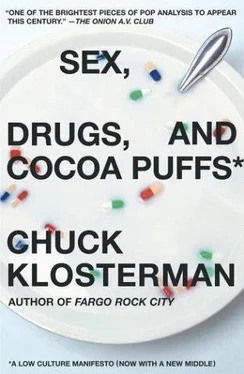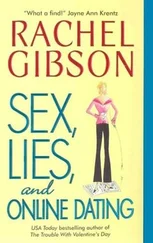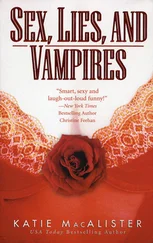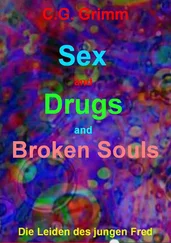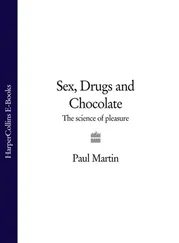However, I ultimately do neither. I just eat my dreadful dumplings and wait around to hear Robert “The Dean of Rock Critics” Christgau discuss whether or not American pop music is still exceptional, although the only part of his speech I remember is when he says, “I don’t see any new Nirvanas lurking around, and I don’t plan to.” I guess he doesn’t like Hoobastank, either.
Saturday, April 12, 11:00 A.M.:Right now I’m listening to Sarah Dougher, and she seems deeply offended by something (and possibly by everything). Dougher is a musician and a teacher at Evergreen State College in Olympia, and she’s taking issue with the fact that her symposium, titled “Personal Stories,” is the only panel at the conference composed exclusively of women. It appears she also has problems with the way her panel is named: “I make music in a sexist world that views the male experience as general and the female experience as personal, ” she says. To me, the latter designation actually seems preferable to the former, but what do I know? Dougher later mentions that academia and music are “two of the most sexist professions that exist,” further solidifying my suspicion that people attend Evergreen in order to avoid attending life.
This sense of utter unreality is a problem with several of the academic papers at this event; they’re often written from completely detached perspectives. Yesterday, some dude from Middle Tennessee State gave a speech about how the threat of terrorism is not worth the chilling effect the recently legislated “Patriot Act” could have on political artists like Sting. This might be true…although I’m guessing it’s considerably easier to downplay the threat of terrorism when you work at Middle Tennessee State. I don’t see a lot of jets crashing into downtown Murfreesboro.
Still, it would be disingenuous if I didn’t mention how innovative (and how clever) some of these presentations truly were. Craig Seymour of the Atlanta Journal-Constitution talked about “boy band slash fiction,” outlining how certain fans of ’NSYNC like to imagine Justin Timber lake getting fisted by Lance Bass. Glenn Dixon surmised that much of the Contemporary Christian genre is driven by artists who literally want to fuck Jesus Christ. And the aforementioned Wolk’s juice-fueled explanation of how CDs are inappropriately remastered for pop radio was fascinating and insightful. These are all examples of people who truly did think about music in new, unconventional ways.
But here’s the depressing rub: You know who’s not thinking about music in new, innovative ways? Musicians. At least not the musicians who came to this conference.
You see, Saturday night was supposed to be the big collision of sound and fury; this was when local “rock stars” were going to take part in a high-profile EMP symposium, simulcast on public radio. The four participants were Mark Arm of Mudhoney, Carrie Brownstein of Sleater-Kinney, Sam Coomes of Quasi, and all-around indie rock impresario Calvin Johnson.
And they all had nothing to say.
For two hours, I watched four people stare at the audience, all trying to prove they were cool enough not to care about the attention. None of them had any prepared statements (well, Brownstein claimed she did, but then she elected not to read it). None of them wanted to answer any of the moderator’s inquiries, and they made fun of half the audience members who dared to ask them questions. Coomes spent all 120 minutes trying to act confused; Arm preferred to play surly; Brownstein opted for a nervously bookish vibe; Johnson just tried to seem weird. At one point, Calvin bemoaned the fact that—since the end of the World War II era—Americans won’t even sing “Happy Birthday” at parties, apparently because our willingness to sing in public has become “atrophied.” Clearly, Calvin Johnson has never been to an Olive Garden.
“I try not to analyze the process of listening to music,” Brownstein begrudgingly said. “The less I think about my art, the better,” reiterated Arm. If you take these artists at their word, there is no intellectual element whatsoever to rock music; all you do is walk out on stage and emote. According to them, there’s never anything to think (or write) about; in fact, attempts to do so sully the entire creative process.
Luckily, hardly any of the visiting critics or academics attended the musicians’ panel, as it happened to be scheduled during suppertime. And honestly, I’m glad they didn’t go. Who needs to hear that your life’s work is irrelevant? I prefer to imagine all of America’s rock geeks breaking bread together, talking about Silk-worm songs and Clinic b-sides and forgotten Guided by Voices shows and—maybe for the first time in their lives—feeling completely and utterly normal. I’m sure their orange juice never tasted so sweet.
(waiting to die interlude)
Whenever I can’t sleep, I like to lie in the darkness and pretend I’ve been assassinated. I’ve found this is the best way to get comfortable. I imagine I’m in the coffin at my funeral, and people from my past are walking by my corpse and making comments about my demise. It’s quite reassuring: At least at my imaginary funerals, it’s amazing how many of my female friends were secretly in love with me.
Some people think this habit makes me a freak, but I disagree. I’m always shocked when friends tell me they don’t like to think about death; I think about dying constantly, and I think everybody else should, too.
I recall once sitting around a bonfire and asking all the folks staring into the flames what they fantasize about more: dying or having sex. I thought I knew what was going to happen: I thought everybody would immediately answer “sex,” but—as we talked about the question in detail and slowly lowered our shields of enforced normalcy—the honest people would admit that they actually thought about dying a lot more than they thought about fucking. Much to my surprise, everyone insisted that they fantasize about sex constantly and never dream about being killed, which seems insane to me. Relatively speaking, having sex is so easy. People do it all the time. It’s so pedestrian; fantasies about making love are rarely necessary and usually contrived. However, dying is always original. It’s always a onetime limited engagement, and (depending on your theology) it’s either the defining moment of existence or the final corporeal sensation in the universe’s most remarkable coincidence. How can anyone not be consumed by that? I’m constantly thinking about how bullets would burn into my lungs, or if my eyes would remain open if my skull shattered a windshield, or if cancer cells itch, or how it will sound if and when I drown. I cannot shake the notion of my head being swatted off by a grizzly bear, or of my rib cage being pulverized by a madman with a ballpeen hammer, or of being buried alive. There has never been a day in my life when I didn’t day-dream about having both my collarbones crushed into powder. And these are not things I necessarily want to happen; these are just things that warrant consideration (certainly more consideration than how I’d most prefer to orgasm).
In all likelihood, you don’t think about dying enough.
18 How to Disappear Completely and Never Be Found 2:20
I’m having a crisis of confidence, and I blame Jesus.
Actually, my crisis is not so much about Jesus as it is about the impending rapture, which I don’t necessarily believe will happen. But I don’t believe the rapture won’t happen, either; I really don’t see any evidence for (or against) either scenario. It all seems unlikely, but still plausible. Interestingly enough, I don’t think there is a word for my particular worldview: “Nihilism” means you don’t believe in anything, but I can’t find a word that describes partial belief in everything . “Paganism” is probably the closest candidate, but that seems too Druidesque for the style of philosophy I’m referring to. Some would claim that this is kind of like “agnosticism,” but true agnostics always seem too willing to side with the negative; they claim there are no answers, so they live as if those answers don’t exist. They’re really just nihilists without panache.
Читать дальше
